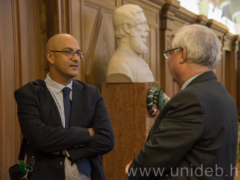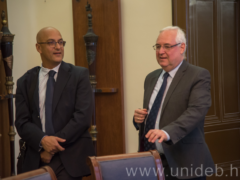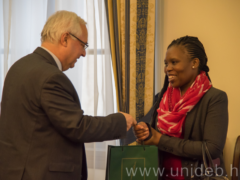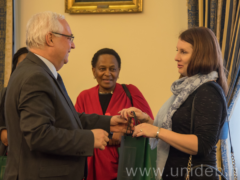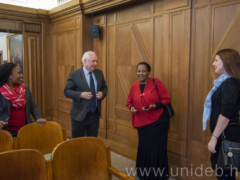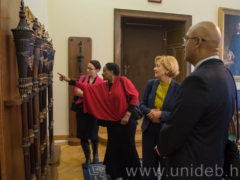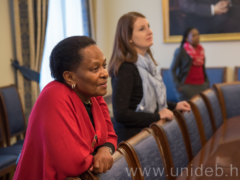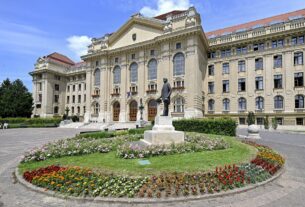Members of a prestigious delegation arriving from the distant country learnt about the educational programme offering of the university, as well as the scholarship opportunities provided by Stipendium Hungaricum, and also met South African students studying here at the University of Debrecen.
Beginning from the next academic year, Hungary expects to welcome at least 100 students from the South African Republic. They would study in our country with the support of the Hungarian government, in the framework of the Stipendium Hungaricum scholarship programme. During their visit on 1 March, the delegation received information on the programme offering of our university.
“The educational programmes of the University of Debrecen are known and recognised internationally, and are therefore increasingly popular among students from abroad. Currently, more than four thousand students from 105 countries study in the more than 50 English-language programmes offered by the 14 faculties,” Elek Bartha told the unideb.hu portal after his discussions with the delegation about the possibilities offered by the university. The vice rector for education underlines that the relationship is not new, since the university applied jointly with the South African Republic to a grant in the Erasmus+ international credit mobility programme, which will make it possible for faculty members and students alike in the future to pursue research in the African country.
“Currently, there are 410 students at the university whose studies are funded by Stipendium Hungaricum grants, and this number may increase further by the South African students arriving from the next academic year. It is our hope that a significant percentage of the 100 students eligible nationwide will chose the University of Debrecen, for which the guarantee may be the widest offering of programmes in Hungary,” Attila Jenei, director of the Coordinating Center for International Education, emphasised.
During their visit in Debrecen, the delegation also met students from South Africa, Angola and Nigeria.
Press Office, uni










